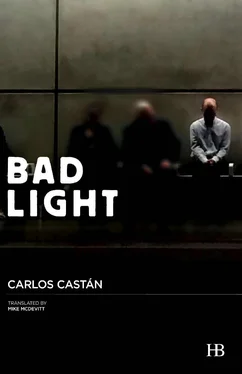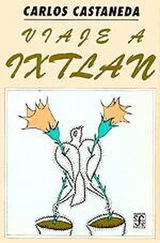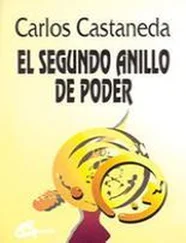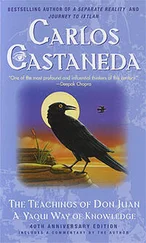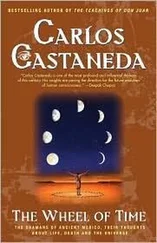Carlos Castán - Bad Light
Здесь есть возможность читать онлайн «Carlos Castán - Bad Light» весь текст электронной книги совершенно бесплатно (целиком полную версию без сокращений). В некоторых случаях можно слушать аудио, скачать через торрент в формате fb2 и присутствует краткое содержание. Год выпуска: 2016, Издательство: Hispabooks, Жанр: Современная проза, на английском языке. Описание произведения, (предисловие) а так же отзывы посетителей доступны на портале библиотеки ЛибКат.
- Название:Bad Light
- Автор:
- Издательство:Hispabooks
- Жанр:
- Год:2016
- ISBN:нет данных
- Рейтинг книги:5 / 5. Голосов: 1
-
Избранное:Добавить в избранное
- Отзывы:
-
Ваша оценка:
- 100
- 1
- 2
- 3
- 4
- 5
Bad Light: краткое содержание, описание и аннотация
Предлагаем к чтению аннотацию, описание, краткое содержание или предисловие (зависит от того, что написал сам автор книги «Bad Light»). Если вы не нашли необходимую информацию о книге — напишите в комментариях, мы постараемся отыскать её.
Carlos Castán
Bad Light
Bad Light — читать онлайн бесплатно полную книгу (весь текст) целиком
Ниже представлен текст книги, разбитый по страницам. Система сохранения места последней прочитанной страницы, позволяет с удобством читать онлайн бесплатно книгу «Bad Light», без необходимости каждый раз заново искать на чём Вы остановились. Поставьте закладку, и сможете в любой момент перейти на страницу, на которой закончили чтение.
Интервал:
Закладка:
Something had rotted away inside my head, thoughts that broke off from their course and began to fester on the shore. I couldn’t stop myself from penning letters in my head. The words flowed, sometimes out loud. I’d forget the beginning and start afresh. Dear Jacobo, for example, dear Jacobo, now you are dead, it’s all over, the books you left lying half-read on the bedside table and on the bookshelves and here, there, and everywhere, the romantic trysts you had set in motion or harbored in the filthy bedroom of your imagination, and also the unease on those nights when you could not bring yourself to be alone. You will never hold a grandchild in your arms, you will not return to Proust in that future, ideal winter you had in mind, with snow and vintage cognac and a lit fire next to the enormous window you sometimes sketched. Nor will you ever make good on that fantasy of yours of sending out, on some birthday or other, for a handful of whores of the most expensive sort, as you liked to put it, of the type that dress up as Parisian ladies at the drop of a hat and speak several languages and have a certain poise (and, indeed, savoir faire ) wherever they might find themselves and who wear on their person the most authentic silk, brought from China or wherever, and who feign desire as only they know how and part their lips in that way they have and then it’s game over, for they have been trained to act as if they would drop dead there and then should anyone prize them away from your flesh. Dear Jacobo, now you are dead, and I am sitting in your apartment, in near darkness, while a few blocks from here, at my place, no one is waiting up for me. Dear Jacobo, now you are dead, I ought to be thinking about who killed you, and yet I think only about who might kill me. And that makes me feel like scum. That and the fact that I was unable to cry when they told me the news, not even the following day at the cemetery. Only now, somewhat too late in the day and perhaps thinking more of what the loss means to me than the end, in and of itself, of your being. It occurs to me to call you up and ask to borrow those axes, and also so that this time it might be you who comes to keep me company at my place at night, for I can feel how the fear is growing within me, and I don’t know which way to turn when the past returns, where to hide, because I turn off the lights and shut the doors but the blood will not rest or sleep or be silent. Then it dawns on me that you truly have gone, and it’s as if it were happening all over again, small aftershocks of your death in my head. I thought of you as the maddest of the mad when I discovered that primitive, makeshift arsenal half-hidden in the entrance to your apartment, I thought that you had already veered over the edge and were a prime candidate for the psychiatric ward, at which I’d have to visit you on Sunday afternoons bearing chocolates and cartons of cigarettes. And yet you have been proven, in the worst possible way, to have had good reason to stay up all night long, on guard and armed. It turns out that the threat was perfectly real and not the fantasy of a sick man with sweaty dreams of bloodstained blades, much as he might just as well have filled his thoughts with other, no less dreadful things, like the horror of the planets floating in the darkness of infinity and filling everything with a vertigo and a solitude too vast even for the universe to hold, or the possibility of dying at short notice without knowing any love other than that which has already come and gone, that recollection as sweet as it is hazy and that barely lives on in the memory as something that was ultimately tossed away with the trash, that was used up unwittingly in a time long since passed that was one of plenty, or at least appeared to be, when we would return from the supermarket laden with diapers and economy-sized packs of condoms and provisions too plentiful to fit inside the fridge and everything was as it should be and life was like the heavenward journey on a freshly painted swing in a garden dotted with olive trees. Before the light began to fade and the blood drained from everyone’s lips.
Dear Jacobo, you’ve been murdered and I’m thinking about my life. And this hurts, for it has not escaped my attention that it is selfish, when all is said and done, much like when you would try to get things off your chest and I’d simply bide my time, waiting for the chance to butt in and get things off mine. The thing is, even seeing it so clearly, I cannot stop myself so easily. You went mad, and with your soundness of mind, hand in hand, mine, too, evaporated. You are dead, and what I feel, at every turn, as clear as daylight, under my skin and in all of the air that surrounds me, is my own death. I am powerless to stop it; if my thoughts were not so free, so elusive to my own will, I would no doubt have been a different person, I’d have been happy. And it so happens that these days I’ve also been thinking back to the words Robert Antelme wrote his friend Mascolo in a letter: “Dionys, I should like to say to you that I don’t think of friendship as a positive thing, I mean as a value; much more than this, I think of it as a state, an identification, therefore as a multiplication of death, a multiplication of questioning.” I remember that you made me read The War and all that we spoke of back then. And though, out of modesty, we were unable to meet one another’s gaze when uttering certain words, I believe we were well aware of the space that anguish occupies in every love. Now you have gone and in some way you’re dragging me behind you, you take with you on your departure the meaning of things, as a lure so that I might race behind you, so that, sniffing after that bait in tireless pursuit, I might end up lying by your side on the same drab beach on which one breathes one’s last, seagulls shriek, and songs fade out. Yet there is nothing to reproach or even lament — with due conviction I shoulder the weight of a single cross that is mine to bear.
Allow me also to say one more thing. Some years ago, your death would have been a thousand times better, when you still lived with a woman who loved you. There was a time when you’d have said your goodbyes to the world with the sense of taking your leave filled with love. I’ve seen it elsewhere, in relatives or friends accompanied to the very end by wives who fight with the doctors, who move heaven and earth to get one more test, a painkiller, or a bed next to a window overlooking the pine forest, ones who stay in the hospital all night long, night after night, without so much as opening a book, simply saying goodbye to you with their eyes, making you feel that the journey that is coming to an end was a thing of wonder and that, somehow, it was all worth it. Setting metaphysical or biological considerations to one side, death is something that has to do with absence, an absence that must be noticed by someone. Those of us who live as alone as lepers cannot die in this sense, for we have in a way already been dead for some time. To truly die, you must leave a gap behind, the place at the table where you sat down to have breakfast with the others and where no one now pulls up a chair. Death is that bit of the table on which a cup of coffee is missing. You must leave behind an empty chair if you wish to die a proper death or for anyone to remember you some day; and, Jacobo, the empty chairs you leave behind you go unseen, they stand in a lonely, locked apartment. Which is perhaps why I feel that your death belongs to me, that you died only for me, much as I, had things happened the other way around, would have died for you alone. And if any light is to be shed by your end, if any lesson might be drawn from all this, there can be no pupil other than myself in the empty classroom at whose lectern you all of a sudden fall silent as I watch you for the last time from the only desk.
Читать дальшеИнтервал:
Закладка:
Похожие книги на «Bad Light»
Представляем Вашему вниманию похожие книги на «Bad Light» списком для выбора. Мы отобрали схожую по названию и смыслу литературу в надежде предоставить читателям больше вариантов отыскать новые, интересные, ещё непрочитанные произведения.
Обсуждение, отзывы о книге «Bad Light» и просто собственные мнения читателей. Оставьте ваши комментарии, напишите, что Вы думаете о произведении, его смысле или главных героях. Укажите что конкретно понравилось, а что нет, и почему Вы так считаете.
